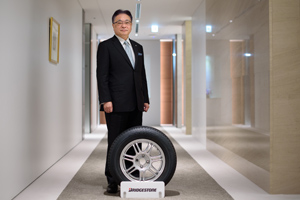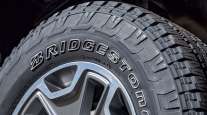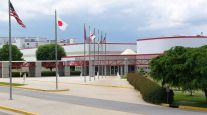How Bridgestone's CEO Learned When to Walk Away From a Deal

The acquisition would have been a good fit for the Japanese tire maker, but not for the $1 billion-plus price that Icahn paid in an all-cash deal, according to Tsuya, 63. “It’s like selecting a husband for your daughter,” he said in an interview. “You have to be skeptical and keep asking whether she has really made the right choice.”
Tsuya’s philosophical approach to deal-making comes from an unpleasant experience. As a young executive, he was part of the team that negotiated Bridgestone’s $2.7 billion acquisition of Firestone Tire & Rubber Co. in 1988 at the height of Japan’s super-heated “bubble economy” and global acquisition spree by Japan Inc.
Bridgestone paid way too much for the U.S. tire maker, a deal that dragged down its earnings in the ensuing years. Firestone was embroiled in a years-long safety scandal in the early 2000s involving Ford Motor Co. sport utility vehicles, which involved recalls of millions of tires and links to 271 highway deaths.
This time around, Bridgestone showed restraint. As the world’s largest tire maker, it operates more than 2,200 tire and automotive centers in the United States. A Pep Boys deal would have added 800 locations across more than 30 states.
The Japanese company initially offered to pay $15 per share and later raised its bid to $17 per share to counter Icahn, who aimed to combine Pep Boys with the Auto Plus chain he acquired in 2015. Icahn eventually paid $18.50 a share, or $1.01 billion. The billionaire had vowed to go even higher if Bridgestone didn’t back down.
“They were well-prepared for it and they knew the right price for the deal, so that’s OK,” said Kota Yuzawa, a Tokyo-based analyst at Goldman Sachs Group Inc. “There could be another chance to get other dealer networks.”
When Tsuya received a late-night e-mail from the company’s U.S. unit chief notifying him Icahn had joined the bidding war, he said he expected it. The Bridgestone team working on the deal — made up of 10 people in Japan and 10 in the United States — had prepared for all scenarios and were willing to fold their cards beyond a certain price, according to Tsuya.
“It’s a decision we had made in advance so there was no hesitation from anybody,” he said. “We didn’t even need to meet to discuss since it was almost the end of the year.”
Bridgestone made different choices 28 years ago with its Firestone deal. Initially, the two companies announced that Bridgestone would buy 75% of Firestone’s tire operation to form a joint venture. But a surprise bid for the whole company by Italian tire maker Pirelli led Bridgestone’s then-President Akira Yeiri to take bolder action.
Yeiri deemed the acquisition key to Bridgestone’s expansion plans. Acting on a rumor that Pirelli might raise its offer from $58 to $75 per share, Yeiri decided on $80 per share, Businessweek reported in 1991. It bid for all of Firestone, ignoring warnings by some top executives that the buyout would drain Bridgestone of too much talent and money.
Bridgestone soon learned many of the plants it acquired were in worse condition than anticipated. After the purchase, it invested $1.5 billion over three years in Firestone. The Firestone unit weighed on the parent, with earnings dropping 76% in 1989 and 53% the next year even as revenue rose.
Tsuya, who joined Bridgestone in 1976, was a junior member on the project team that worked on the Firestone acquisition. While the Firestone takeover helped Bridgestone expand, Tsuya said if he could do it all over again, he wouldn’t have bumped up the price as much in one shot and instead would have raised the bid little by little.
“It was like rushing into a marriage with too much passion,” Tsuya said. “Although I think the strategy to take over Firestone was right, we paid very expensive costs after finding out the unexpected negative things after the marriage.”
Bridgestone plans to increase the number of dealers in some U.S. states by either investing in or buying small dealer groups, Tsuya said. It may also consider acquiring some of Pep Boys’ business if they’re up for sale again, he said.
Top management should never be too passionate about mergers and acquisitions, Tsuya said, likening them to marriage. “Without passion it won’t work, but with too much passion, you may end up chasing too high and offering too much. You need to have some coolness.”



